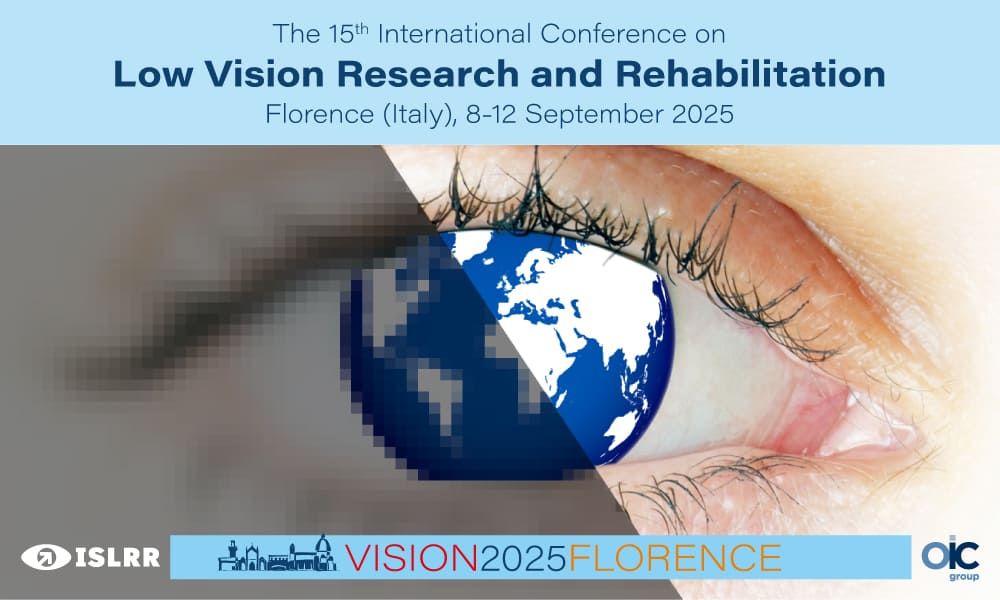Vision 2025, the International Conference on Low Vision, Coming to Palazzo dei Congressi from September 8th to 12th

Florence, July 23rd, 2025. Vision 2025, the 15th International Conference of the International Society for Low Vision Research and Rehabilitation (ISLRR), will take place at Palazzo dei Congressi from September 8th to 12th, 2025. This interdisciplinary event aims to address the broad implications of visual impairment.
The conference is organized by three leading Italian scientific institutions in the field of low vision: the Low Vision Academy, PRISMA (Professionals for Low Vision Rehabilitation and Associated Diseases), and the National Center for Services and Research for the Prevention of Blindness and the Rehabilitation of the Visually Impaired.
The local organizing committee includes prominent professionals in the field: Dr. Paolo Limoli, Scientific Director of the Low Vision Study Center in Milan; Dr. Filippo Amore, Director of the National Center for Low Vision and Visual Rehabilitation; ophthalmologist Dr. Anna D’Ambrosio, President of PRISMA; Dr. Simona Turco, Research Coordinator at the National Center for Low Vision and Visual Rehabilitation; and Dr. Roberto Volpe, Head of the Low Vision Service at the Ophthalmology Department of Arezzo Hospital.
Experts from a variety of disciplines, including ophthalmologists, orthoptists, optometrists, opticians, psychologists, geneticists, pharmacologists, as well as and medical students, will have the opportunity to present and share progress, ideas and innovations in the treatment of visual disabilities on a global scale.
The main goal of the conference is to explore ways to minimize the impact of visual impairment on daily independence. Vision rehabilitation aims to enhance patients’ remaining visual abilities, preserve them over time and support perception and living in their environment.
A strong emphasis will be placed on professional training. The event will feature plenary sessions as well as parallel sessions. Topics will include cell therapy, diagnostics and gene therapy, the use of artificial intelligence, strategies for effective visual rehabilitation and approaches to compensating for vision loss.